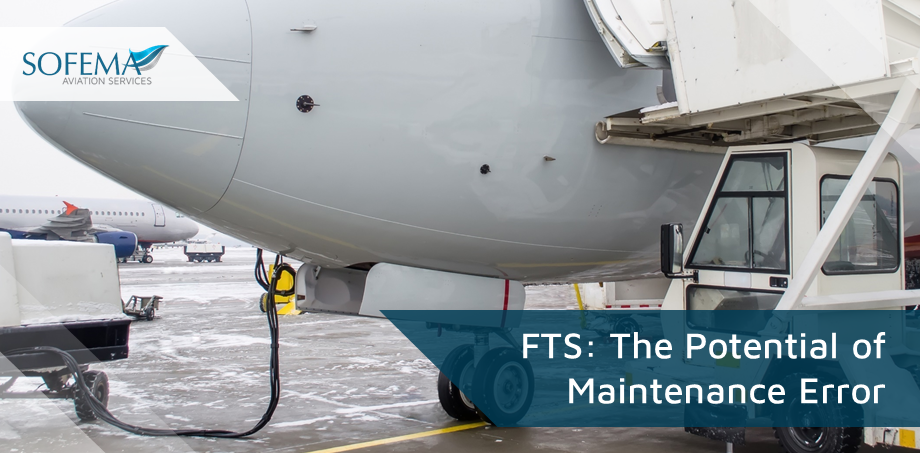Sofema Aviation Services (SAS) www.sassofia.com considers the relationship between maintenance error and fuel tank safety exposure
Introduction – Maintenance errors can have severe implications for fuel tank safety in aviation, which, at the very worst, could lead to catastrophic outcomes. Here we look in detail at typical causal factors and appropriate mitigations where relevant.
Aviation maintenance personnel can better engage with safety management systems and implement effective preventive measures by understanding the types of errors that can occur, the common maintenance issues affecting fuel tanks, and the severe consequences of such errors. Continuous education, rigorous adherence to procedures, and fostering a culture of safety and transparency are key to mitigating risks and ensuring the safety of aviation fuel systems.
Types of Maintenance Errors
- Human Error: Mistakes made by maintenance personnel, such as improper installation of components, failure to follow procedures, or overlooking crucial checks.
- Procedural Errors: Deviations from standard operating procedures or incorrect procedures that can lead to unsafe conditions.
- Documentation Errors: Inaccuracies in maintenance logs, checklists, or manuals, which can result in miscommunication and improper maintenance actions.
- Tool and Equipment Errors: Use of incorrect or faulty tools and equipment that can damage fuel tank components or lead to incomplete maintenance.
Common Maintenance Errors Affecting Fuel Tank Safety
- Improper Sealing: Incorrect installation of fuel tank seals or gaskets can lead to fuel leaks.
- Wiring Errors: Faulty wiring or improper installation of electrical components near the fuel tank can cause sparks, leading to potential ignition of fuel vapors.
- Contamination: Failure to properly clean or inspect fuel tanks can lead to contamination by foreign objects or substances, compromising fuel quality and safety.
- Fuel System Component Failures: Improper maintenance or inspection of fuel pumps, filters, and other components can result in fuel flow issues or leaks.
Consequences of Maintenance Errors
- Explosions: Electrical faults or sparks near fuel tanks due to maintenance errors can cause explosions, endangering the aircraft and occupants.
- System Failures: Incorrect maintenance can lead to failures in the fuel delivery system, potentially causing engine shutdowns or fuel starvation.
- In-flight Fires: Improper maintenance leading to fuel leaks or electrical faults can result in in-flight fires, posing significant risk to aircraft safety.
Lessons Learned – Engagement with Safety Management System (SMS)
Trans World Airlines (TWA) Flight 800, July 17, 1996, highlighted deficiencies in the design and maintenance of the fuel tank system, including the vulnerability of electrical wiring.
Shielding and Separation: Improving the design to ensure better shielding and separation of electrical wiring from fuel tanks to prevent any electrical faults from causing sparks.
Utilizing SMS principles to proactively identify and assess hazards related to fuel tank safety. This includes conducting detailed risk assessments and implementing measures to mitigate identified risks.
Encouraging a culture of transparent incident reporting and thorough analysis of any fuel tank-related incidents to derive actionable insights and prevent recurrence.
Regular and thorough inspections of electrical wiring, particularly those near fuel tanks, to identify signs of wear, damage, or potential for short circuits. Proactive replacement of aging or damaged wiring.
Preventive Measures
- Following established maintenance procedures and protocols meticulously to avoid errors.
- Following manufacturers’ guidelines and recommendations for fuel system maintenance to ensure compliance and safety.
Lessons learned from incidents underscore the importance of proactive hazard identification, thorough risk assessments, and the implementation of robust preventive measures. Regular inspections, adherence to established procedures, and compliance with manufacturers’ guidelines are paramount.
Next Steps
Follow this link to our Library to find & Download related documents for Free.
Sofema Aviation Services www.sassofia.com and Sofema Online www.sofemaonline.com provide classroom webinar and online training. Please see the websites or email team@sassofia.com for comments or questions.
Tags:
aviation, aviation safety, EASA, Fuel Tank Safety, Fuel Tank Safety (FTS), Human Error, Maintenance Errors, Sofema Aviation Services, SAS blogs, Aicraft Maintenance, Sofema Aviation Services (SAS), Aviation Safety Management System (SMS)





